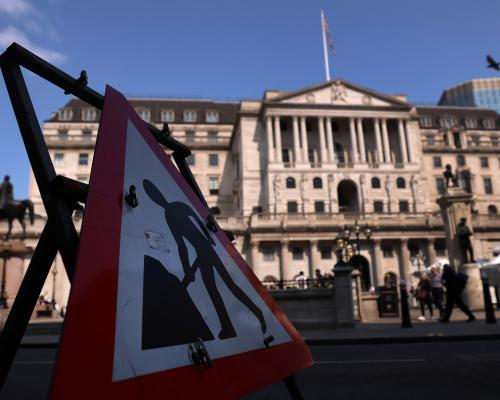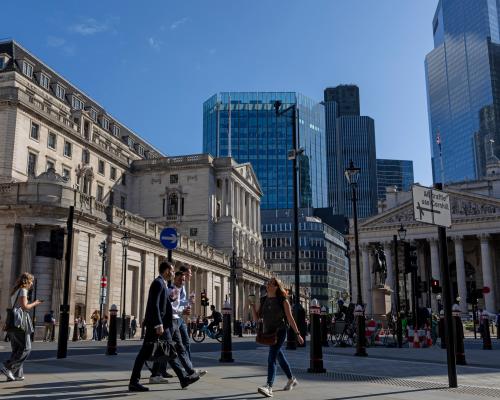
The Bank of England is poised to cut interest rates on Thursday despite a growing divide between its policymakers over the dangers to the economy from high inflation and rising unemployment.
In a development that will ease pressure on households and businesses, City forecasters expect the central bank to announce a quarter-point cut, its fifth rate reduction in a year.
Financial markets predict an almost 100% chance of a quarter-point cut from 4.25%, the same as the last reduction in May.
The chancellor, Rachel Reeves, will welcome the cut as Labour comes under pressure over its economic management and growing questions about potential tax rises at her autumn budget.
Ministers have sought to claim credit for the Bank reducing its base rate four times since August last year, arguing that it had been able to do so only after Labour had worked to “restore stability to the economy”.
Publishing research before the rate decision at midday on Thursday, the party said a family buying a typical home was now paying almost £1,000 a year less on their mortgage than in July 2024, when the Conservatives left office.
Figures from the property website Rightmove showed that a typical first-time buyer’s mortgage payment was now almost £100 a month less than a year earlier.
However, a fifth rate cut will highlight the dangers facing the economy amid a worsening slowdown, as households and businesses grapple with tax rises, stubborn inflation, and global uncertainty created by Donald Trump’s tariff war.
Analysts expect the vote on rates from the Bank’s nine-strong monetary policy committee to be split, exposing tensions at the heart of Threadneedle Street over the best course of action to keep fast-rising consumer prices in check while also safeguarding jobs and growth.
City investors are predicting a three-way split, with the external economists Alan Taylor and Swati Dhingra favouring a bigger, half-point cut amid concern about rising job losses.
Most of the MPC members, including the governor, Andrew Bailey, are expected to vote for a quarter-point reduction.
Huw Pill, the Bank’s chief economist, could split from his colleagues to join the external economist Catherine Mann in voting to keep rates unchanged owing to concerns that inflationary pressures are mounting.
Analysts believe that divisions have become more entrenched since the Bank last produced economic forecasts in May. Threadneedle Street will update its outlook on Thursday.
Michael Saunders, a former MPC member who is now at the consultancy Oxford Economics, said the committee’s split was understandable.
“You have weak growth, rising unemployment and inflation well above target; those signals go in opposite directions [for a rate decision],” he said. “Different people will put different weights on them. It is not sign that they are more argumentative than other committees [in the past], just that they face a greater disparity between growth, unemployment and inflation.”
Interest rate cuts support economic growth by lowering borrowing costs for businesses and households. However, bolstering economic activity can stoke inflationary pressures.
“Monetary policy remains quite tight. Fiscal policy is tightening, and the budget may include further tax hikes later this year. Trade policy uncertainty remains high, deterring investment and hiring.”
China diverting cheap exports from the US to the UK during Trump’s tariff war could also reinforce downward pressure on inflation, he added.
Labour has come under pressure from business leaders blaming Britain’s recent economic weakness on Reeves raising employment taxes in her first autumn budget, which firms warned would force them to cut jobs and put up prices.
Official figures show unemployment has crept higher in recent months, while the economy shrank in April and May. Inflation has risen by more than expected, reaching 3.6% in June – significantly above the Bank’s 2% target.
Business surveys this week have shown a slowdown in the service sector and a collapse in construction output.
Labour said cheaper mortgage rates available today – with the average two-year fixed rate falling to 4.52% – had saved borrowers £81.69 on average each month.
The Treasury minister James Murray said: “Labour’s urgent task when we took office was to restore stability to the economy after 14 years of Tory failure. Since we came into office, rates have been cut four times, and that’s putting more pounds in the pocket of homeowners through cheaper mortgages.”







